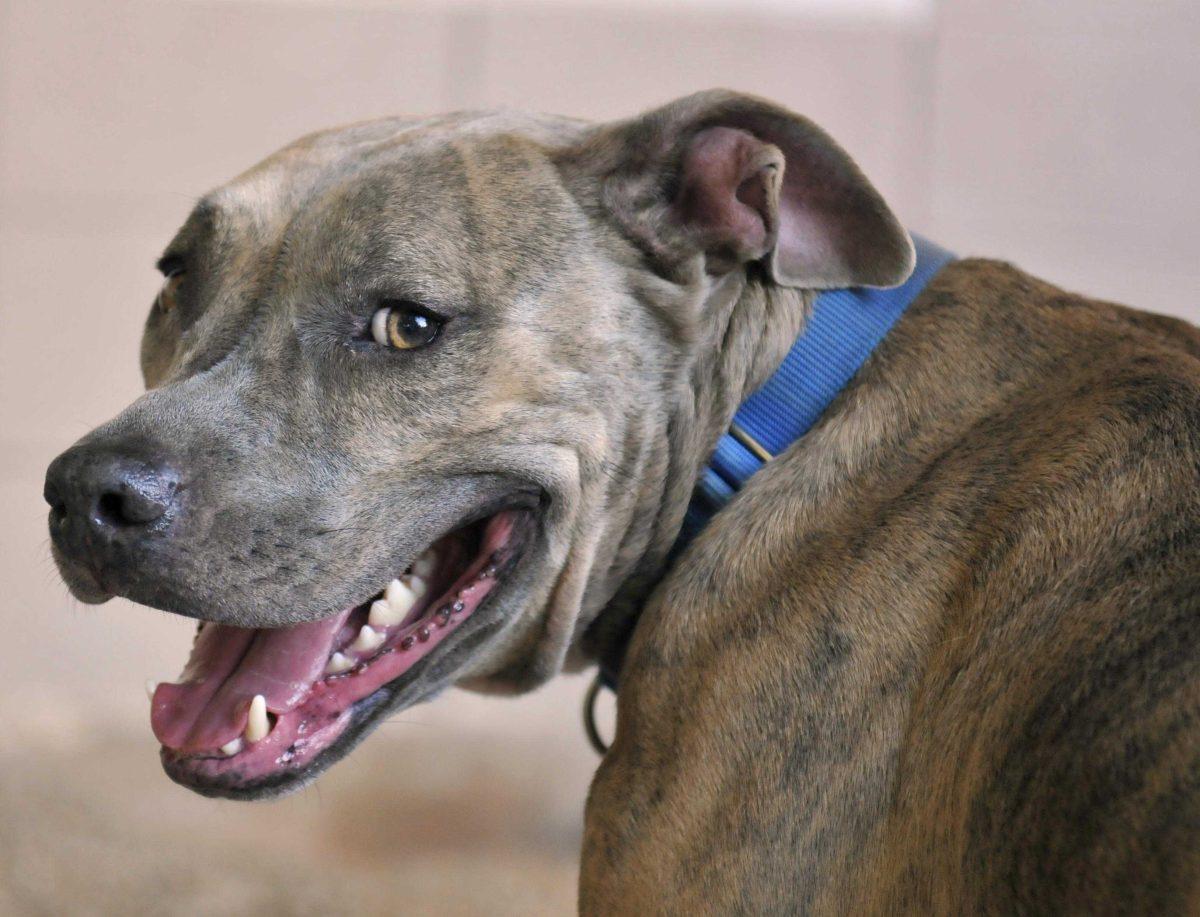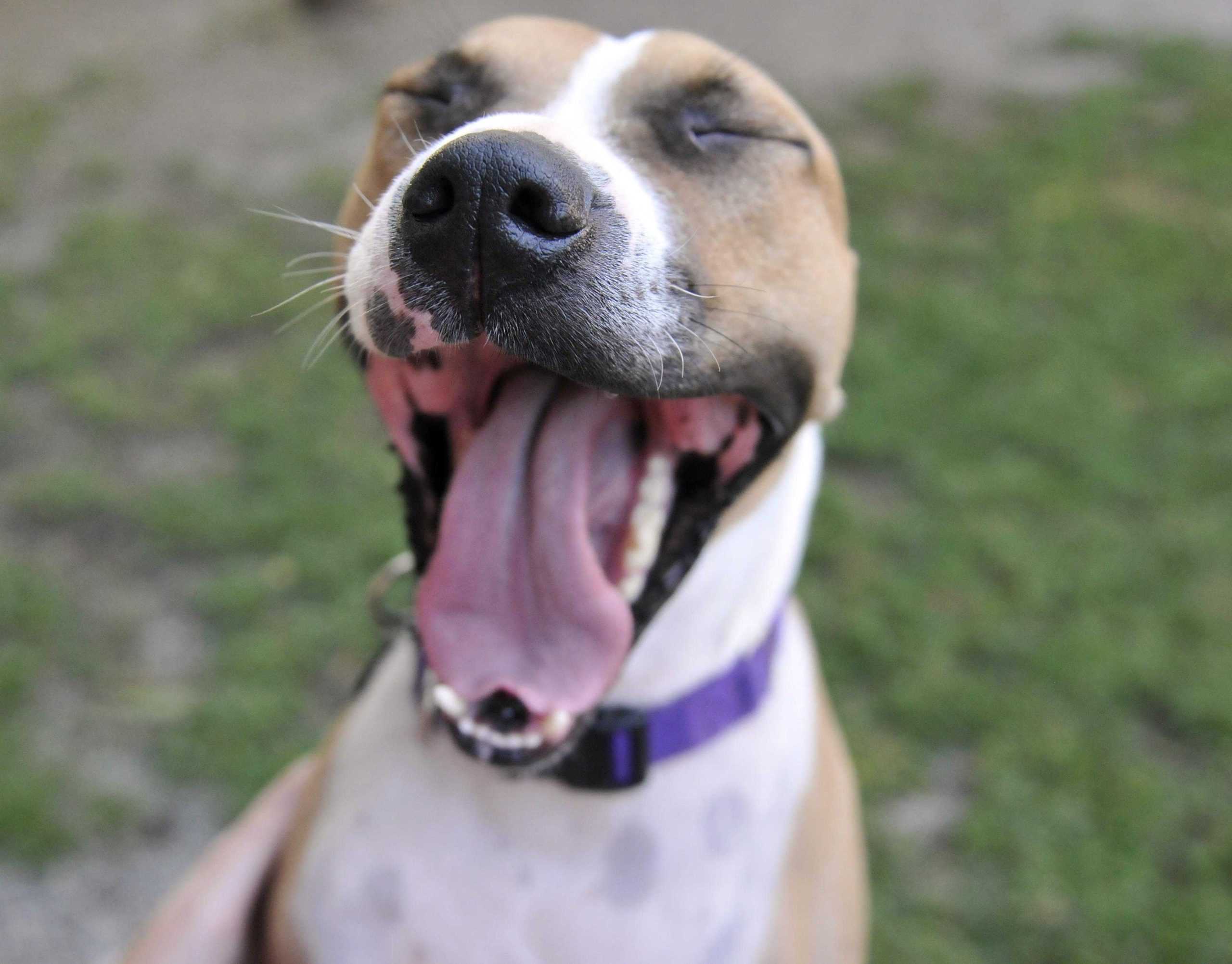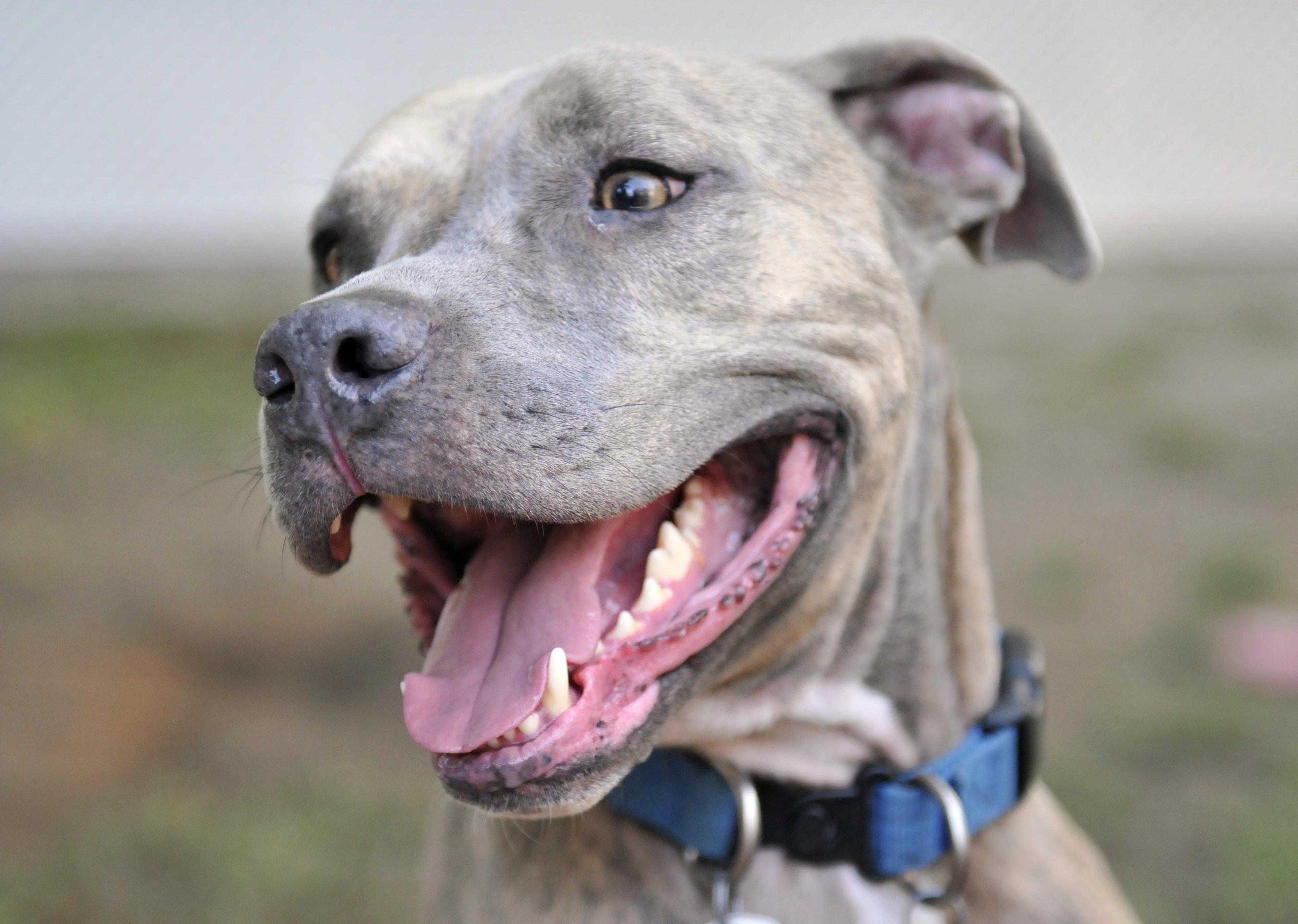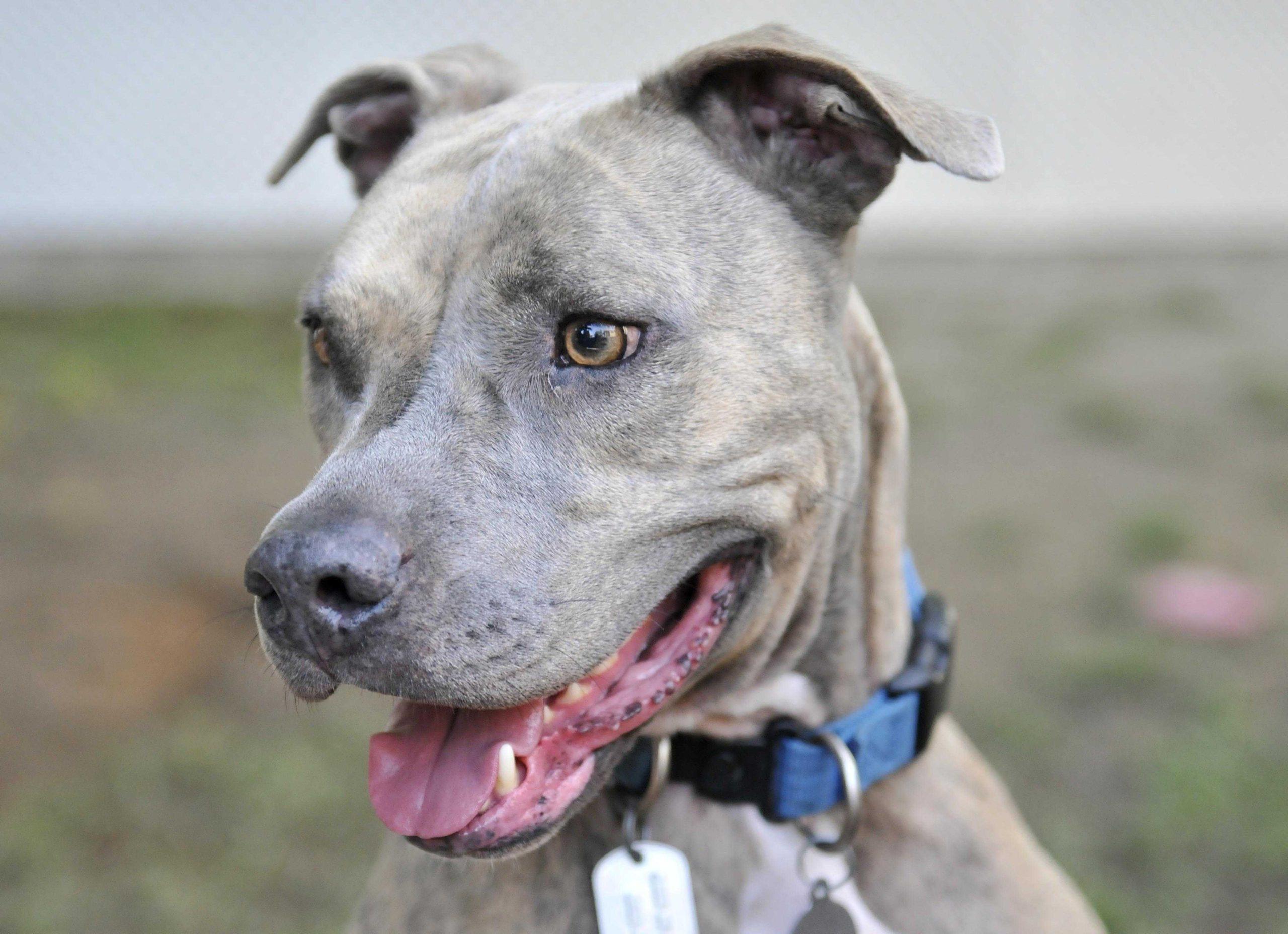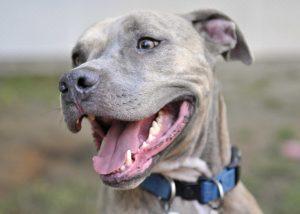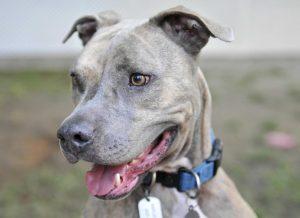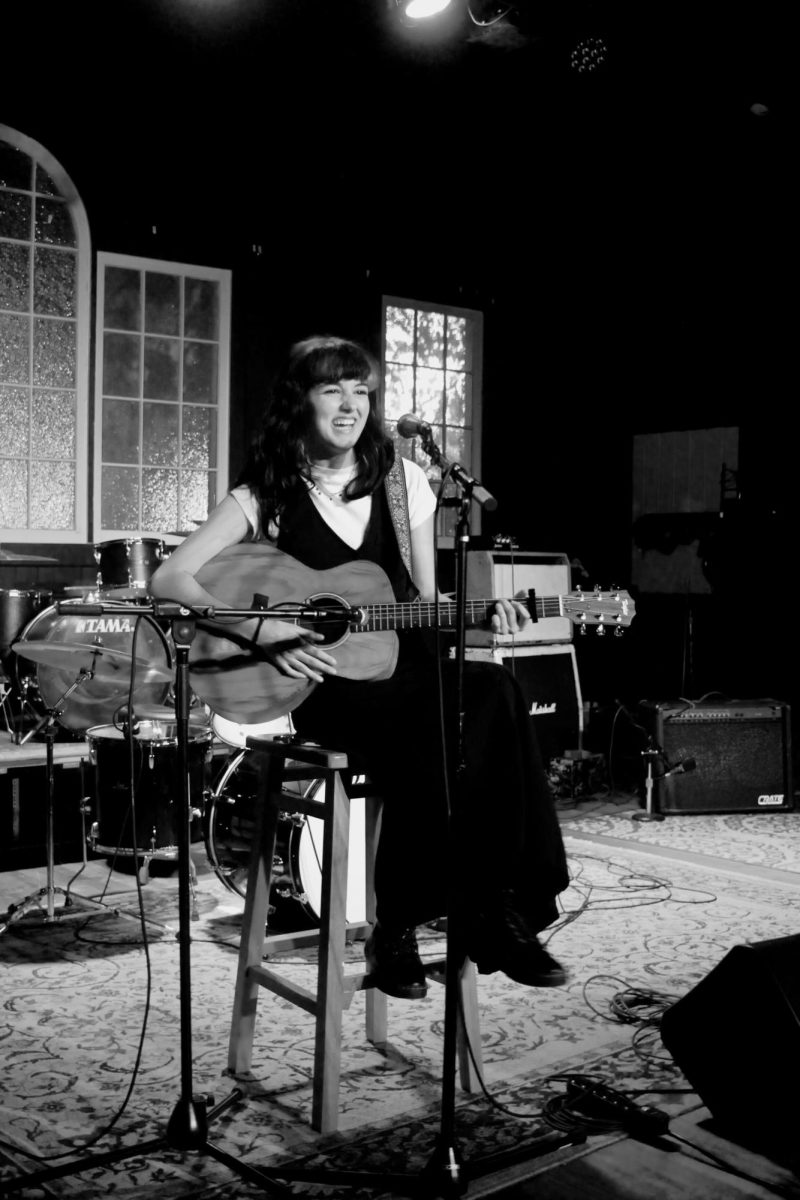Villalobos employee Armando “Mando” Galindo’s shirt sported the message “Pitbull advisory: My dog will lick your face,” in all caps. It was not an empty promise. Galindo’s 2-year-old pitbull, Annie, made her rounds at local bar Slinky’s, licking whatever face came close enough.
Along with several other cast members of Animal Planet’s “Pitbulls & Parolees,” Galindo came to Slinky’s for a donation drive for blankets, towels and toys for the dogs at the show’s featured Villalobos Rescue Center in New Orleans.
Pamela Sandoz, Slinky’s owner and active local dog rescuer since 1992, said she has realized in the past six years that pitbulls and mastiffs need the most help.
Not only are good homes hard to find for these dogs, Sandoz said, but landlords discriminate based on these breeds. She said owners are quick to return a dog in that case.
For the next two months, Sandoz will be collecting toys, towels and blankets for the Villalobos Rescue Center at Slinky’s on West Chimes Street.
According to Galindo, the Villalobos center — located in the Ninth Ward — is the largest dog rescue in the world, and winter is coming for its hundreds of rescues.
The “Pitbulls & Parolees” crew is in the midst of wrapping up their fifth season, slated to air in early November, which Galindo said will be one of the best yet.
“Grab your Kleenex, sit down and watch. You’ll need a couple boxes,” he said.
The center moved to New Orleans from Los Angeles in 2011, bringing with it several employees and volunteers in the VRC parolee program, which hires both juvenile and adult parolees to work with the pitbulls, a breed wrongly accused of vicious natures.
“There’s a misconception about [the dogs],” said parolee participant and former Tulane football star Toney Converse. “In general, … I don’t find [them] to be bad dogs at all. … They’re not people-aggressive unless people teach them that.”
The newest season is Converse’s first on the show.
Galindo said pitbulls want to please their owners more than anything. The organized fighting culture and the stigmas associated with it are easy to perpetuate, he said, because the pitbulls will do their best to be as vicious as possible to please owners who taught them that.
Galindo said Louisiana’s dog problem lies more in neglect than dog fighting, no matter the breed.
He added that the old- fashioned thinking prevalent in the state makes it hard to educate dog owners about proper dog treatment. “They say, ‘You can’t tell me this! I’ve had dogs all my life,’” Galindo said.
Since the show features qualified people taking care of the dogs, Converse said, it shows another side of their natures. The parolees, trained by employees, are able to make the dogs comfortable so that they can be docile, if not friendly.
Converse also said socialization of dogs is important, citing pitbulls’ violent responses to other dogs, cats or children as a symptom of having been sheltered from these stimuli.
“Any dog can be taught to be vicious,” said Capital Area Animal Welfare Society adoption counselor and intake coordinator Sabra Smith. “With any breed, not just pitbulls, you have to know how to socialize them.”
Smith said neglect cases tend to be more aggressive, but the shelter refuses to put them down.
“We just want the best situation for the animals,” she said.
CAAWS is a much smaller operation than Villalobos. Out of the 28 available spots in the program, 13 dogs can be kept in the facility. Even with such little space, the shelter takes care of all “bully breeds” until they can get a proper home.
As a dog owner of several breeds, Smith said her chihuahua would be quicker to attack someone than her pitbull, but the stigma associated with the breed causes problems when finding them permanent homes.
All Bark, No Bite: Pitbulls given chance at redemption by animal rescue centers
October 2, 2013



